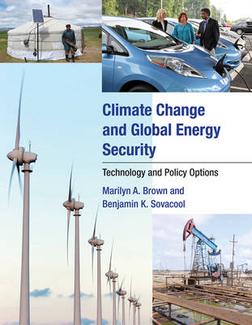 In 1932 I was born into a world of 2 billion people. Nearly 80 years on there are 7 billion, more than three times as many. My own small country New Zealand has nearly tripled its population in that time. I confess to feeling anxiety about the capacity of the globe to sustain this level of population, let alone the further billions we can expect this century. Does that make me a populationist? That’s the term used by Ian Angus, editor of online journal Climate and Capitalism, and Simon Butler, coeditor of Australian Green Left Weekly, in their new book Too Many People? Population, Immigration, and the Environmental Crisis to describe people who attribute social and ecological ills to human numbers. The authors don’t. They attribute climate change and other ecological challenges to the growth imperative of capitalism, and their book takes issue with those who see “overpopulation” as a cause of the threats to the environment.
In 1932 I was born into a world of 2 billion people. Nearly 80 years on there are 7 billion, more than three times as many. My own small country New Zealand has nearly tripled its population in that time. I confess to feeling anxiety about the capacity of the globe to sustain this level of population, let alone the further billions we can expect this century. Does that make me a populationist? That’s the term used by Ian Angus, editor of online journal Climate and Capitalism, and Simon Butler, coeditor of Australian Green Left Weekly, in their new book Too Many People? Population, Immigration, and the Environmental Crisis to describe people who attribute social and ecological ills to human numbers. The authors don’t. They attribute climate change and other ecological challenges to the growth imperative of capitalism, and their book takes issue with those who see “overpopulation” as a cause of the threats to the environment.
Category: Book reviews
Fools Rule: Inside the Failed Politics of Climate Change
 Canadian investigative journalist William Marsden doesn’t hide his anguish or his anger as he reports the maddening incapacity of political leaders and negotiators to come to terms with climate change. Nor should he. It’s a sorry story he has to tell in his new book Fools Rule: Inside the Failed Politics of Climate Change. Marsden’s book treats three sobering realities. One is the science. He writes of the utter desperation of scientists “as they pile proof upon proof only to see it disappear into the smoke of denial or crash against the excuse of political and economic expediency”. He fully grasps the scientific picture and the mounting threats it points to. Regarding the work of glaciologists as fundamental to understanding climate change, he has buttressed his acquaintance with the science by spending time with working scientists in the Canadian Arctic. Last year glaciologist Martin Sharp agreed to Marsden tagging along with his team working on the Devon Island ice cap. Consequently the book includes a lively narrative of the conditions under which those scientists work when on the ice. He leaves the reader in no doubt that the science is “overwhelming and frightening”.
Canadian investigative journalist William Marsden doesn’t hide his anguish or his anger as he reports the maddening incapacity of political leaders and negotiators to come to terms with climate change. Nor should he. It’s a sorry story he has to tell in his new book Fools Rule: Inside the Failed Politics of Climate Change. Marsden’s book treats three sobering realities. One is the science. He writes of the utter desperation of scientists “as they pile proof upon proof only to see it disappear into the smoke of denial or crash against the excuse of political and economic expediency”. He fully grasps the scientific picture and the mounting threats it points to. Regarding the work of glaciologists as fundamental to understanding climate change, he has buttressed his acquaintance with the science by spending time with working scientists in the Canadian Arctic. Last year glaciologist Martin Sharp agreed to Marsden tagging along with his team working on the Devon Island ice cap. Consequently the book includes a lively narrative of the conditions under which those scientists work when on the ice. He leaves the reader in no doubt that the science is “overwhelming and frightening”.
Continue reading “Fools Rule: Inside the Failed Politics of Climate Change”
The Ecological Rift
 Why do we continue with business as usual when we know that it is leading us to disastrous climate change? According to the authors of The Ecological Rift: Capitalism’s War on the Earth it is because our capitalist economic system is driven by forces which cannot stand back and weigh the consequences of their drive. The blind accumulation of private wealth at the expense of the environment has enormous momentum which the system is not geared to control.
Why do we continue with business as usual when we know that it is leading us to disastrous climate change? According to the authors of The Ecological Rift: Capitalism’s War on the Earth it is because our capitalist economic system is driven by forces which cannot stand back and weigh the consequences of their drive. The blind accumulation of private wealth at the expense of the environment has enormous momentum which the system is not geared to control.
The authors, John Bellamy Foster, Brett Clark and Richard York are all sociology professors. They write from the broadly Marxist standpoint exemplified by the Monthly Review magazine of which Foster is the current editor. As might be expected, their attack on capitalism is not limited to its environmental devastation but also takes in its exploitation of human labour for private profit. One of the interests of the book, for me with only a superficial acquaintance with Marx’s thought, was its explanation of the unity which Marx saw in nature and society and which western Marxism failed to sustain. The authors point, for example, to Marx’s interest in soil science and awareness of the nutrient depletion accompanying a more industrialised agriculture. Nature as well as human society needed to be protected from the capitalist juggernaut.
Rough Winds: Extreme Weather and Climate Change
 James Powell has produced a Kindle eBook, Rough Winds: Extreme Weather and Climate Change, which in brief compass links climate change to the extreme weather events increasing across the globe. As a Kindle Single it has the advantage of being right up to date with what has been happening in the US, including the visit of Hurricane Irene. You don’t need a Kindle to read it – apps are available for other devices and I read it on my PC. It cost 99 cents!
James Powell has produced a Kindle eBook, Rough Winds: Extreme Weather and Climate Change, which in brief compass links climate change to the extreme weather events increasing across the globe. As a Kindle Single it has the advantage of being right up to date with what has been happening in the US, including the visit of Hurricane Irene. You don’t need a Kindle to read it – apps are available for other devices and I read it on my PC. It cost 99 cents!
Powell is the author of the recent book The Inquisition of Climate Science which I reviewed here. He’s a former geology professor, college president and museum director who also served as a member of the US National Science Board for twelve years. In Rough Winds he writes for the general reader. He points out that scientists have been thinking about global warming for nearly two centuries. It is one of the oldest concepts in science, recognised first in the 1820s and then refined in the 1860s and 1890s and steadily throughout the second half of the 20th century. Moreover it’s uncomplicated and incontrovertible. There’s no escape from the elemental fact that the extra CO2 we are putting into the atmosphere will cause future temperatures to be higher than they would otherwise have been. And the warmer the earth, the more extreme will be the weather. Continue reading “Rough Winds: Extreme Weather and Climate Change”
Climate Change and Global Energy Security
 Academics Marilyn Brown and Benjamin Sovacool, who have impressive credentials in the field of energy policy, are co-authors of the recently published Climate Change and Global Energy Security: Technology and Policy Options, a substantial and detailed study of a very wide range of technologies covering both the promise of those options and the obstacles to their effective employment.
Academics Marilyn Brown and Benjamin Sovacool, who have impressive credentials in the field of energy policy, are co-authors of the recently published Climate Change and Global Energy Security: Technology and Policy Options, a substantial and detailed study of a very wide range of technologies covering both the promise of those options and the obstacles to their effective employment.
I was deeply depressed by the time I got to page 64 of the book. That was where the tale of five challenges ended. The authors had enlarged the energy and climate change scope of the book somewhat to identify five challenges threatening the prosperity of future generations: electricity, transportation, forestry and agriculture, waste and water, climate change. They do it thoroughly, and it seemed well-nigh impossible that the growing population of the world could possibly cope with these problem areas. But the reader is counselled in the final paragraph of the chapter not to give up in despair, as the issues can be broken down into more manageable challenges to which technology and policy solutions are readily available. Continue reading “Climate Change and Global Energy Security”
